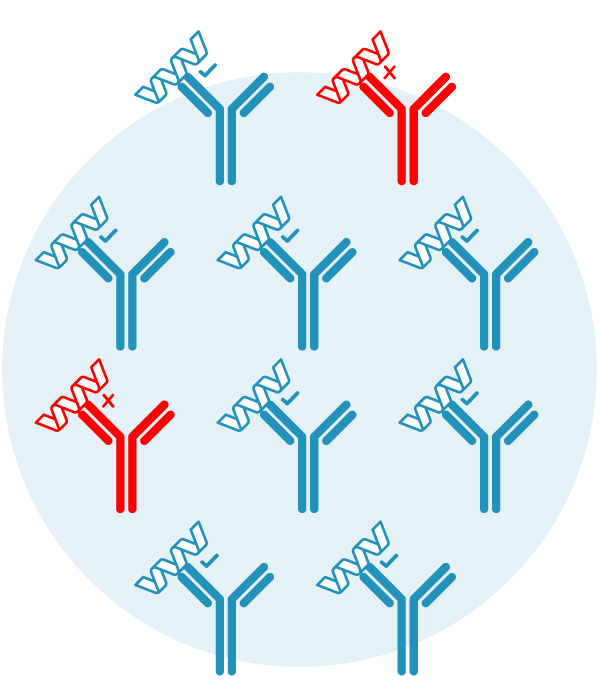Data suggest that up to 20% of lead monoclonal antibodies (mAbs) display deleterious off-target binding, often against difficult-to-predict unrelated targets.
Unbiased proteome-wide specificity profiling can provide a much more comprehensive picture of off-target liabilities, thereby greatly de-risking pre-clinical candidates prior to IND (investigational new drug) filing.
For therapeutic human mAb analysis, we run the full HuSIGHT assay (both full-length and peptide libraries) in replicate and serial dilution, providing you with the most comprehensive specificity analysis available in the market.
Reveal key residues and interactions by integrating molecular docking predictions and high throughput profiling data.



